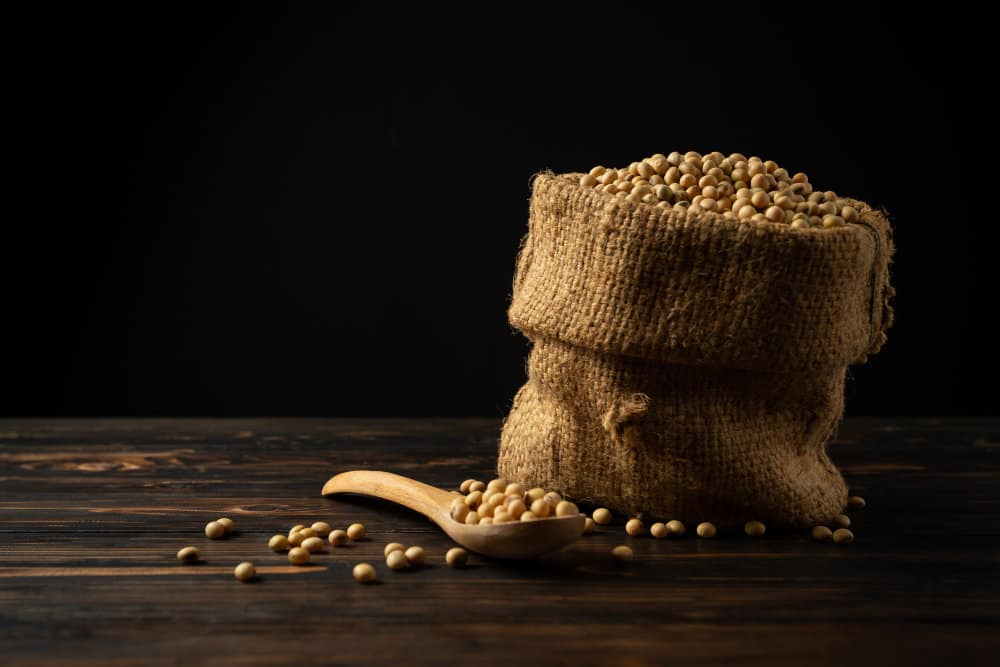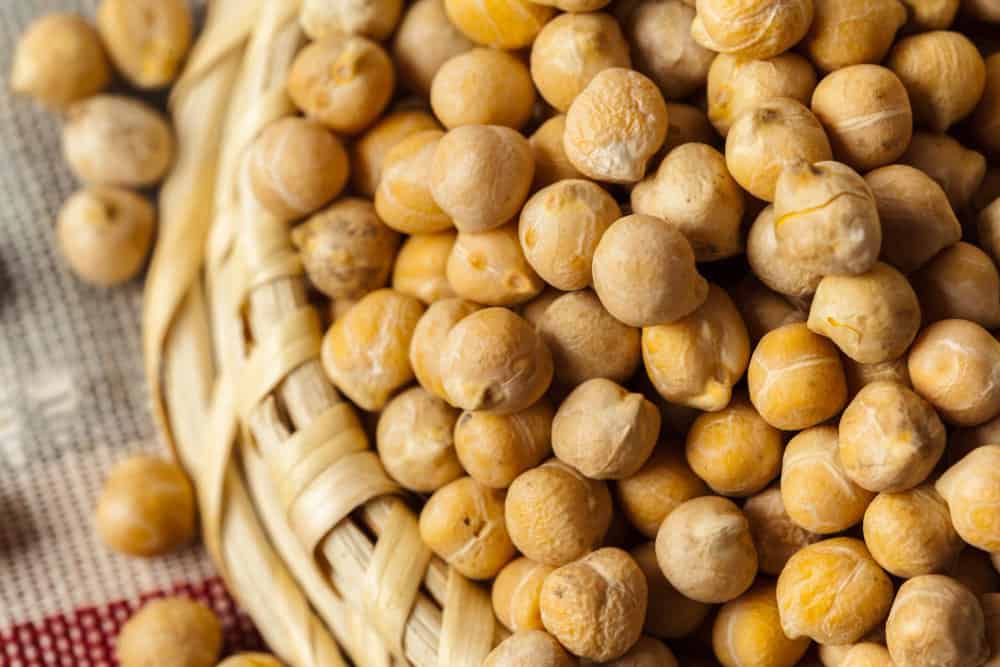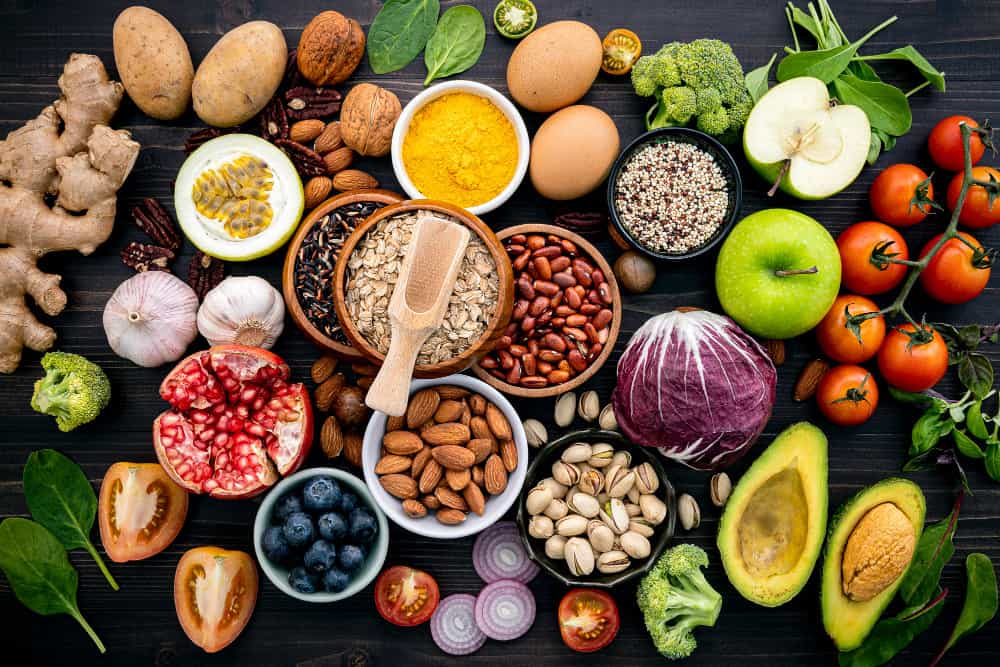A healthy diet will always lead to a healthy body and weight. And maintaining a healthy body and weight can sometimes be a hard goal to achieve. But thankfully, health communities have come up with diet plans to help you lose fat and maintain your ideal body weight. Also, being healthy definitely helps you prevent diseases such as cancer, diabetes, heart diseases, and any other serious health conditions. These diet plans either restrict you from consuming certain foods or make you focus on a specific one. Either way, the complexities of these approaches to weight loss might make these diet plans not work for you… or they might be effective after all.
One of the healthiest components there is when it comes to weight loss management is adding fiber to your diet. Although not as “au courant” as other terms in the health community such as paleo, pescatarian, and keto; fiber is just as important of a nutrient as the ones highlighted in the previously mentioned diets.

What is fiber?
Unlike proteins, carbohydrates, and fats, fiber is part of a plant that our digestive system can not completely break down and absorb. This is due to human beings lacking the enzymes that help break them down, so what happens is that they pass through the digestive tract without any difference from their initial form. With adequate intake, fiber could help reduce your risk of chronic diseases. And one of the many benefits of taking fiber into your body is that it stimulates the trillions of bacteria that are in your digestive system, called the gut microbiota. Fiber is responsible for feeding the estimated 100 trillion bacteria residing in your gut. These microbes found in your digestive system are also oftentimes called the gut microbiome or gut flora. These various species of bacteria have specific and very important roles to play when it comes to your health, from brain function to controlling your blood sugar and managing your body weight. And like any other organism, bacteria need to eat to stay healthy, and that’s where fiber comes in. One type of fiber, called soluble fiber, reaches the good gut bacteria mostly unchanged despite passing through the digestive tract, is digested by the said bacteria, and turned into a form of usable energy. And after that process is where weight loss begins. This soluble fiber benefited by your gut bacteria is also called fermentable or prebiotic fiber.
So what is soluble fiber?
Fiber is categorized into two types: soluble and insoluble fiber.
One fiber is different from the other based on how they each interact with the water in your body, but they are just as important when it comes to health, digestion, and weight loss.
Soluble fiber
- Slows down digestion by attracting water and turning it into a gel-like substance.
- Soluble fiber may help lower the risk of heart disease and reduce blood sugar spikes.
- Found in barley, oats, seeds, nuts, lentils, beans, and in some fruits and vegetables.
- Can also be found in a common fiber supplement called psyllium.
Insoluble fiber
- Helps food pass through the stomach and intestines quickly.
- Does not blend with water.
- Found in wheat bran, whole grain, and vegetables.
- Adds bulk to the stool.

Which type of fiber can help you lose weight?
Research studies show that high fiber intake does not only help you prevent serious health conditions but can also help you lose weight. (“One large study published in the Journal of Nutrition found that increased fiber intake helped subjects lose weight independently of other factors in their diet.”)
Interestingly enough, though, only soluble fiber appears to be helpful when it comes to weight loss and weight management. While soluble fiber affects your health and weight significantly, insoluble fiber mostly acts as a bulking agent by helping form your stool. Unlike insoluble fiber that doesn’t attract water, soluble fiber(glucomannan and beta-glucan) mixes with water and turns into a gel with a thick viscosity, which helps slow down digestion. Marissa Moore, R.D.N., L.D., a culinary and integrative dietitian, said, “Fiber slows down the speed of digestion, which makes you feel full and may help you eat less and stay satisfied longer.” Another significant role fiber plays when it comes to weight loss is: “Because fiber helps slow down digestion, it also slows down how quickly your body responds to the carbohydrates you eat and can help you better manage your insulin and blood sugar response to food,” explains Krista Linares, R.D.N., specializing in diabetes management in the Latino community.
Soluble fiber is also considered to be a powerful and natural appetite suppressant. Reduced calorie intake from your appetite being suppressed is another way to lose weight. One theory about how soluble fiber could help you reduce your appetite is that a high intake of the soluble fiber reduces the amount of ghrelin in your body, which is a hunger hormone. Soluble fiber also increases the body’s production of cholecystokinin, peptide YY, and GLP-1, all three are hormones that make you feel full.
Another theory is the slowing down of food movement through the digestive tract. This theory explains that when nutrients like glucose are released into the digestive tract at a slow rate, the release of insulin becomes slower too, thus the less hungry you feel.
Despite soluble fiber being more effective when it comes to weight loss, insoluble fiber could help relieve constipation and more. Due to its bulking agent action, insoluble fiber is vital for digestive health. “Fiber is not digestible, so that extra bulk is added to your stool, which helps you stay regular,” according to Linares. She also added that “having healthy, regular digestion can have long term health benefits such as reducing the risk of colorectal cancers.
Where can you get soluble fiber?
Soluble fiber can be found in a lot of plant-based foods, making it easy to add to your diet plan. Food such as sweet potatoes, apricots, flaxseeds, legumes, and grains contain a high amount of soluble fiber. It is advised to ease into a high fiber diet because taking in a high amount of soluble fiber right away can cause diarrhea, bloating, and cramps. The US Department of Agriculture recommends men consume 30-38 grams of fiber a day, and 21–25 grams a day for women. You can read this article to find out more about how much fiber to consume.
Sources: https://www.healthline.com/nutrition/why-is-fiber-good-for-you#TOC_TITLE_HDR_4 https://www.healthline.com/nutrition/fiber-can-help-you-lose-weight https://www.prevention.com/weight-loss/a33382312/fiber-for-weight-loss/ https://www.verywellfit.com/high-fiber-foods-for-weight-loss-1087917 https://www.health.harvard.edu/blog/making-one-change-getting-fiber-can-help-weight-loss-201502177721 https://www.healthline.com/nutrition/fiber-and-belly-fat#TOC_TITLE_HDR_6 https://medlineplus.gov/ency/article/002136.htm https://www.healthline.com/nutrition/fiber-can-help-you-lose-weight
© 2016-2022 by Overweight.net, a LIVenture LLC. All rights reserved. No part of this document may be reproduced or transmitted in any form or by any means, electronic, mechanical, photocopying, recording, or otherwise, without prior written permission of LIVentures LLC.








